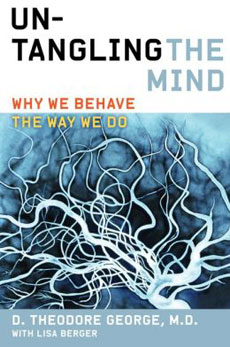Ted George began his career 27 years ago at the National Institutes of Health in Bethesda, Maryland, where he is now associate clinical director. He is board certified in psychiatry and internal medicine; he is a clinical professor of psychiatry at George Washington University School of Medicine. Lisa Berger is a writer of nonfiction books on psychiatry, mental illness, and neuroscience.
Most of us, at one time or another, have experienced losing control of an emotion (fear, anger, panic) and flipping out. In this accessible and focused paperback, George points out that extreme emotions can flip the switch deep in the brain which functions as a survival tool. When the brain is in this mode, people have to learn ways to switch it off.
The treatment process for dealing with these volatile emotions and with the periaqueductal gray (or PAG) is working with patients to help them to override the brain's survival reactions. Part of this treatment program is centered around having the patient take responsibility for his or her emotional behavior and not just see the brain as the culprit. George concludes:
"No one can live a life cloistered from stress or fear. If you live in a bubble with no fear or threats, you will never learn to handle them. Avoiding them entirely is not a good strategy because you are unprepared for the inevitable encounter. You need to know how to react when your survival system sounds the alarm. Even more, you need to know how to modulate survival behavior."
